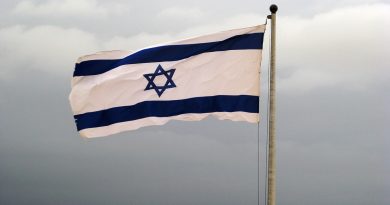Cambodia Exits Long-Term Regional Pact as Political Corruption Runs Rampant
Cambodia Exits Long-Term Regional Pact as Political Corruption Runs Rampant
Abigale Giordano
Staff Writer
Cambodian Prime Minister Hun Manet submitting to political pressure has created uncertainty regarding his government’s commitment to regional cooperation, as Cambodia withdraws from a twenty-year-old pact with Laos and Vietnam. This threatens to isolate the country as geopolitical tensions within the region continue to rise.
Manet’s move followed protests that erupted throughout the country, arguing the pact benefited foreign interests. In August, 66 protestors, including several children, who criticized the Cambodia-Laos-Vietnam Development Triangle Area (CLV-DTA) were arrested on accusations of attempting to topple the government. Barron’s confirms that nine of those arrested face prosecution, while the others have been released. Cambodians across the globe, including in South Korea, Japan, and the United States have been protesting the pact before Manet’s decision as well.
The CLV-DTA was formalized with the intention of facilitating trade and migration cooperation in four northeastern provinces of Cambodia and border areas in Laos and Vietnam. Those against the pact criticize it for prioritizing foreign interests over Cambodia’s own domestic interests, claiming it cedes those provinces to Laos and Vietnam. In particular, fear of Vietnamese encroachment has long been a political firecracker in Cambodia, fueled by anti-Vietnamese sentiment.
Manet has been called out for the hypocrisy of his decision, as he labeled groups that opposed the agreement extremists that utilized slander to attack the government and confuse the public. “For instance, allegations that the government ceded the territory of the four northeastern provinces to foreign countries, etc.,” he posted, according to The Associated Press. However, The Associated Press furthers that after pulling out from the agreement, Manet said his government is “taking into account people’s concern on territory and the need to withdraw weapons out of the hands of extremists to prevent them from using CLV-DTA to further cheat people.” Despite the allegations, the deal’s primary goal was to boost economic productivity for the nations and regional development for the states involved.
Cambodians have long criticized their government, specifically on silencing critics and political opponents. Hun Manet succeeded his father Hun Sen last year, who ruled the state for four decades. Despite leaving CLV-DTA, there are few signs of political liberalization. Human Rights Watch reports that despite Cambodia’s self-characterization as a democratic state, it is effectively a single-party state with fixed and controlled elections, a lack of independent media, ruling party interference and control of all state institutions, political control of the judiciary, and systematic harassment and targeting of critics in the political opposition and civil society. Sen maintained power last May because of the National Election Committee barring his main opposition, the Candlelight Party (CLP) on several fronts, including the rejecting the CLP’s application documents on biased, politically motivated grounds; emphasizing the lack of integrity in Cambodian elections.
Throughout his career, Sen used violent rhetoric, surveillance, intimidation, judicial harassment, and violent attacks to maintain his power. Throughout 2023, CLP members who opposed him were assaulted in Phnom Penh in broad daylight or convicted or arrested for politically motivated crimes, Human Rights Watch reports. Last July, the government fined and banned 18 opposition party members from holding elected office for ten to twenty years after being convicted in absentia for inciting voters to spoil their national election ballots.
Further, the government controls all Khmer-language national TV, radio stations, and newspapers, severely censoring the Cambodian government’s corruption. The few independent news outlets face constant harassment, intimidation, and threats of shutdowns. Last July, the government issued an order to internet service providers to block access to online websites and social media accounts of three major independent media outlets: The Cambodia Daily, Radio Free Asia, and Kamnotra. The Department of Information and Audiovisual was authorized to do this to block sites that “disseminate misleading news affecting the honor and reputation of the Royal Government.”
As protests continue, Manet stands in the turmoil his corrupt predecessor and party created as the political landscape he entered into as the new Prime Minister. The way he got into office, as well as the actions of his administration so far, continues to increase domestic and regional tensions.
Image courtesy of Getty Images

